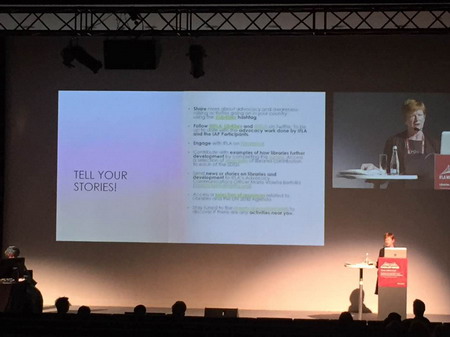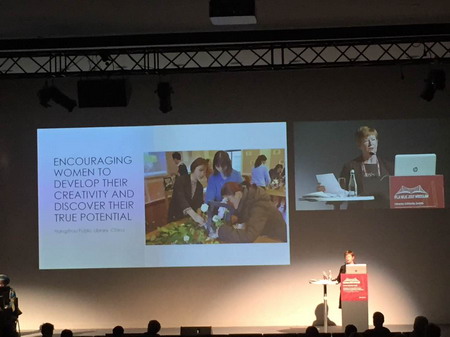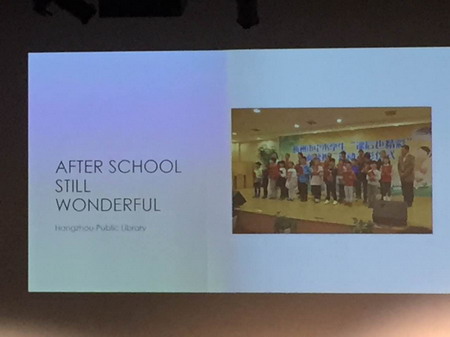2 Examples from Hangzhou Public Library(HPL) were shared in a presentation by Christine Mackenzie, IFLA Governing Board Member entitled “Libraries on the Agenda: Sharing best practice examples from Asia-Oceania” on Aug 22, in the session — Demonstrating the Contribution of Libraries to the UN 2030 Agenda: Examples from IFLA Division V,at the IFLA congress in Wroclaw, Poland.
The 3-minute long introduction of the cases from HPL emblematically reflected how we put emphasis on services to the disadvantaged group.
The 1st case is from City Life Theme Branch of HPL. Various events held by the library aims at encouraging women of different ages and social roles to develop their creativity and discover their true potential, share their own inner voice, and become more confident. Cooking classes, floral design, cloth art DIY, horticultural activities, make-up courses and some other activities focused on life skills are regularly organized to fulfill their personal potential and improve the way of life with more arts and elegance, as well as set them free from tedious chores and fast-paced daily life.
The 2nd case is about a program related to digital resource sharing starting from 2015. Co-hosted with Hangzhou Children's Library and Hangzhou Education Bureau, Hangzhou Public Library shares its digital resources to schools in rural areas, and especially in some remote areas where extremely lack of education resources. By the end of 2016, the program had already covered 774 schools and provided services for a population of around 970,000 with 3.38 millions clicks of the digital resources. Besides, 20 various activities have been held to promote this platform, getting more children to be involved. Among them the most influential one is an online reading promotion activity named “After Class Still Wonderful”, attracting 182,68 students from 152 schools. In addition, a teaching team consisting of librarians, resource suppliers and computer tutors has been formed, helping students and teachers to get more knowledge on how to use the various kinds of digital resources either through face-to-face communication, online teaching, or by telephone counseling.


